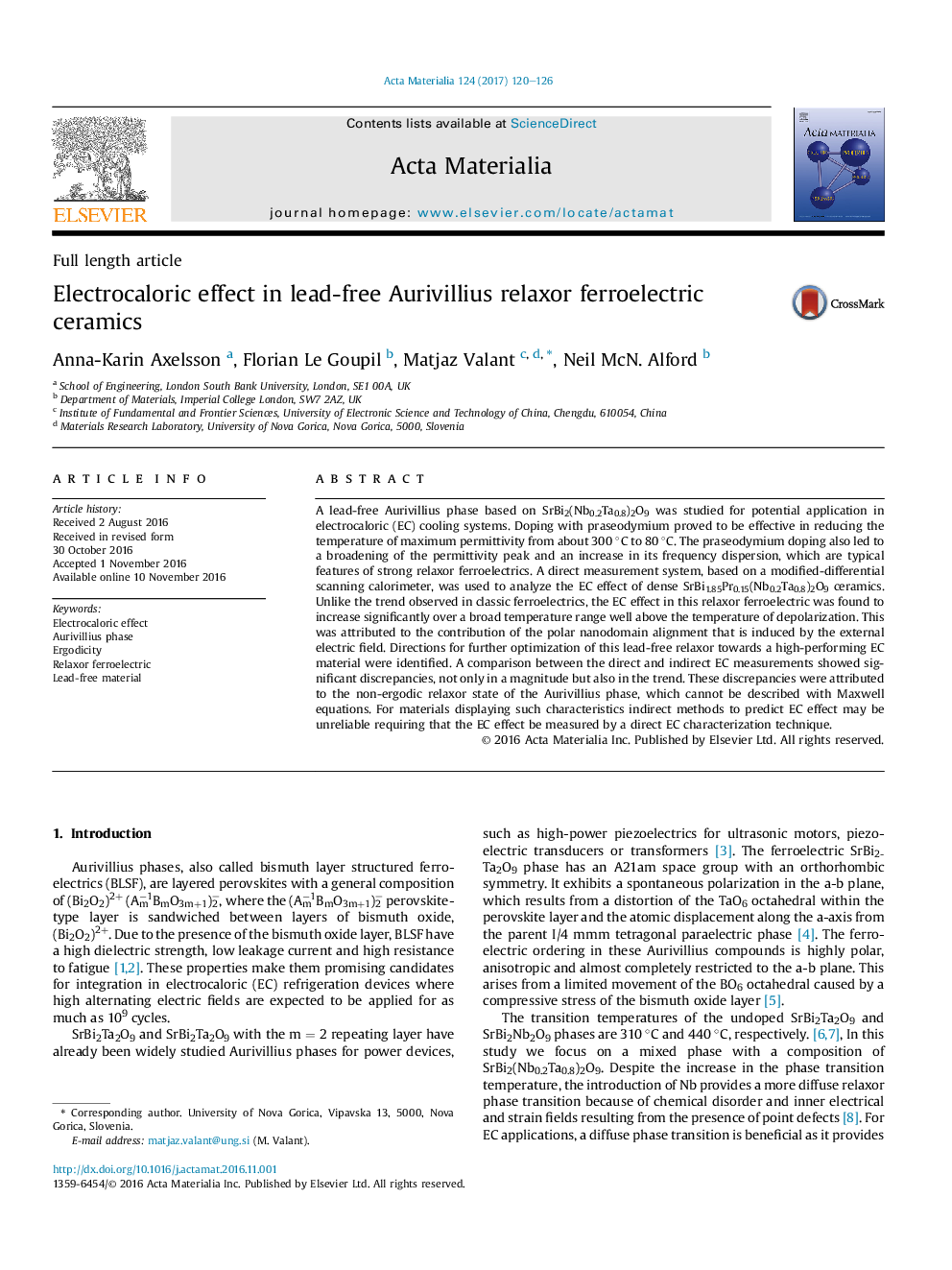| کد مقاله | کد نشریه | سال انتشار | مقاله انگلیسی | نسخه تمام متن |
|---|---|---|---|---|
| 5436432 | 1509552 | 2017 | 7 صفحه PDF | دانلود رایگان |

A lead-free Aurivillius phase based on SrBi2(Nb0.2Ta0.8)2O9 was studied for potential application in electrocaloric (EC) cooling systems. Doping with praseodymium proved to be effective in reducing the temperature of maximum permittivity from about 300 °C to 80 °C. The praseodymium doping also led to a broadening of the permittivity peak and an increase in its frequency dispersion, which are typical features of strong relaxor ferroelectrics. A direct measurement system, based on a modified-differential scanning calorimeter, was used to analyze the EC effect of dense SrBi1.85Pr0.15(Nb0.2Ta0.8)2O9 ceramics. Unlike the trend observed in classic ferroelectrics, the EC effect in this relaxor ferroelectric was found to increase significantly over a broad temperature range well above the temperature of depolarization. This was attributed to the contribution of the polar nanodomain alignment that is induced by the external electric field. Directions for further optimization of this lead-free relaxor towards a high-performing EC material were identified. A comparison between the direct and indirect EC measurements showed significant discrepancies, not only in a magnitude but also in the trend. These discrepancies were attributed to the non-ergodic relaxor state of the Aurivillius phase, which cannot be described with Maxwell equations. For materials displaying such characteristics indirect methods to predict EC effect may be unreliable requiring that the EC effect be measured by a direct EC characterization technique.
287
Journal: Acta Materialia - Volume 124, 1 February 2017, Pages 120-126